

PLEDGE JOINT
FRONT ON PEACE, REGIONAL DIPLOMACY AND COUNTERTERRORISM
g PM SHEHBAZ SAYS KEEN TO DEEPEN COOPERATION WITH TEHRAN IN ECONOMIC DEVELOPMENT, BILATERAL TRADE AND REGIONAL STABILITY
g REITERATES TWO COUNTRIES ’ FIRM COMMITMENT TO RESOLVING GLOBAL DISPUTES THROUGH PEACEFUL DIALOGUE AND DIPLOMACY
g CONVEYS PROFOUND RESPECT FOR HIS EMINENCE AYATOLLAH ALI KHAMENEI AND PRESIDENT MA SOUD PEZESHKIAN
g IRANIAN PARLIAMENT SPEAKER GHALIBAF THANKS PAKISTAN FOR SUPPORT IN 12-DAY CONFLICT

PM S hehbaz, President Aliyev hold talks to reinforce strategic par tnership in Baku
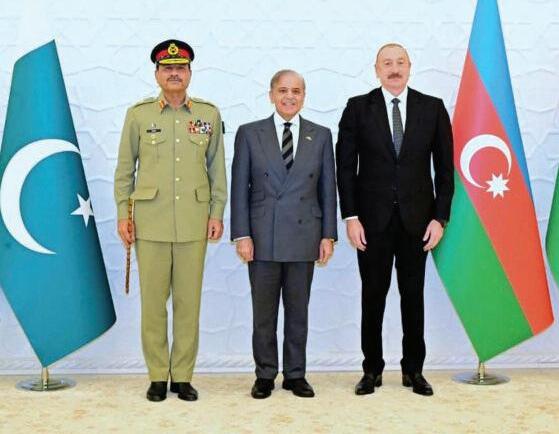
he said
Pakistan slams India’s ‘malicious nuclear test allegations ’
ISLAMABAD
s ta f f r e p o r t Pakistan on Friday firmly rejected India s accusations of conducting covert nuclear tests calling New Delhi s allegations baseless, malicious and part of a disinformation campaign, as Islamabad reiterated that it has not carried out any nuclear tests since May 1998 Responding to questions from the media Foreign Office Spokesman Tahir Andrabi underscored that Pakistan’s nuclear testing record was clear consistent and verifiable adding For the record Pakistan s last nuclear tests were conducted in May 1998 Our position on nuclear testing is well established and consistent He recalled that Pakistan had maintained a self-imposed moratorium on nuclear testing since its 1998 series of tests conducted in response to India’s explosions even as Islamabad had deliberately avoided signing the Comprehensive Nuclear-Test-Ban Treaty (CTBT) to retain the strategic flexibility required in a deteriorating regional security environment Andrabi noted that Pakistan had consistently supported UN General Assembly resolutions calling for a comprehensive ban on nuclear testing while India’s repeated abstentions reflect its ambiguous and questionable intentions on future nuclear testing The FO s sharp rebuttal came after India s Ministry of External Affairs (MEA) invoked a 2019 comment by former US president Donald Trump who had claimed in a CBS 60 Minutes interview that “Pakistan’s been testing” nuclear weapons a remark Islamabad had previously chosen not to contest to avoid unnecessary friction with Washington MEA spokesperson Randhir Jaiswal however revived the claim on Friday, linking it to longstanding Indian allegations regarding Pakistan’s nuclear past
ISLAMABAD s ta f f r e p o r t Defence Minister Khawaja Asif on Friday announced that Pakistan’s high-stakes negotiations with Afghanistan had effectively collapsed saying the Istanbul round had concluded without agreement and slipped into an indefinite phase , as negotiators failed to bridge deep and longstanding differences between the two sides
“Right now as we speak negotiations are over the defence minister said while speaking on a TV channel confirming that the talks had stalled despite intense mediation efforts by Turkiye and Qatar Asif said the Afghan Taliban delegation once again arrived in Istanbul “without any programme” and was unwilling to sign a written agreement “They said they would only respect the verbal agreement but there is no room to
ISLAMABAD s ta f f r e p o r t
Pakistan Peoples Party (PPP)
Chairman Bilawal Bhutto Zardari
on Friday signalled a major opening in the government–opposition dialogue on constitutional reforms announcing that the party is willing to support amendments to Article 243 which defines the powers and command of the armed forces under the proposed 27th Constitutional Amendment
He said the PPP “agrees in principle to the formation of constitutional courts and is ready to move forward on long-pending commitments of the Charter of Democracy, provided provincial rights, judicial balance, and the NFC framework remain untouched Pakistan Peoples Party (PPP)
chairman Bilawal Bhutto Zardari said the party would support amendments to Article 243, which defines the powers of the armed forces, in the proposed 27th Constitutional Amendment
Addressing the media following the conclusion of the Central Executive Committee (CEC) meeting, Bilawal said the CEC had debated the matter of consti-
s ta f f r e p o r t
The Pakistan Tehreek-e-Insaf (PTI) parliamentary party has rejected 27th Constitutional Amendment, terming it suspicious and unacceptable The decision was taken during a parliamentary party meeting chaired by Senate Parliamentary Leader Senator Ali Zafar PTI Senators including Allama Nasir Abbas, Noor-ul-Haq Qadri, Falak Naz, Dr Humayun Mehmood, and others attended the session During the meeting the PTI formulated its strategy for the upcoming Senate session The party announced that it will protest against the exclusion of cases involving PTI founder Imran Khan
tutional courts for two days and agreed in principle that such courts should be established In the 27th Amendment, the amendment to (Article) 243 must
and his spouse from being heard in the higher judiciary In an official statement, the PTI parliamentary party accused the ruling coalition including the PML-N PPP and their allies of bypassing constitutional and ethical norms by bulldozing legislation The party argued that the amendment undermines parliamentary principles by sidelining the opposition and poses a threat to fundamental human rights It also expressed serious concern over attempts to curtail the independence and powers of the judiciary The statement further criticized delays in notifying the Senate opposition leader and demanded the immediate issuance of the notification for Allama Nasir Abbas who was nominated by the PTI founder
be accepted he stated clearly The party chairperson added that unfinished agenda items from the Charter of Democracy had also been discussed


by the International Olive Council (IOC) The policy focuses on sustainable production, improving rural livelihoods, saving foreign exchange, and boosting value-added exports A senior
official from the Ministry of National Food Security & Research stated that the goal is to transform Pakistan from a nascent olive producer into a competitive global market player within five to seven years Pakistan s growing domestic olive oil production has already reduced imports by nearly 50%, with export volumes on the rise The country’s olive oil brand “LO” recently won a silver award at the New York International Olive Oil Competition standing out among 1 200 global entries from 28 countries Since 2014 Pakistan s olive cultivation has expanded significantly, with 33,000 acres of marginal land converted into olive orchards, and over 4 3 million trees planted across 60 districts The country s olive ecosystem now spans over 55 000 acres with 6 9 million trees engaging more than 11 000 farmers To further support the industry, 51
olive oil extraction units are operational in various provinces, along with fruitprocessing units, nursery tunnels, weather stations and laboratories to ensure global quality standards are met International partners including the Government of Italy are supporting these efforts with funding for olive cultivation and processing projects The Olive Oil Council will coordinate these initiatives, focusing on branding, marketing and export strategies to position Pakistan as a credible player in the global olive oil market In addition to its agricultural focus the council will promote olive tourism, national expos, and the development of nutraceutical products, aiming to diversify income streams for rural communities The policy envisions olive cultivation as a climate-resilient economic sector that will contribute to Pakistan s national prosperity
PR OFIT M o n i to r
g d e s k Pakistan’s privatisation drive gained fresh momentum on Friday as the Privatisation Commission Board approved the inclusion of AKD Group Holdings (Pvt ) Ltd in the Arif Habib Corporation Limited-led consortium, one of four pre-qualified groups competing for a majority stake in Pakistan International Airlines Corporation Limited (PIACL)
The decision reflects the government s renewed effort to offload loss-making state enterprises, including the debt-ridden national carrier under the $7 billion International Monetary Fund reform programme The privatisation process was restarted earlier this year with a new call for Expressions of Interest in April, followed by the shortlisting of bidders in June According to the Privatisation Commission the inclusion of AKD Group Holdings is permissible under the terms set out in the Statement of Qualifications The approval was granted during the Commission’s 242nd meeting, chaired by Muhammad Ali, Adviser to the Prime Minister on Privatisation The same meeting also made key decisions on other ongoing initiatives including the privatisation of the House Building
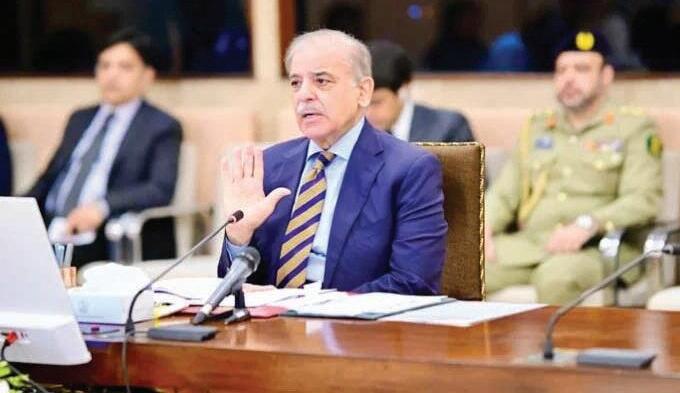
Finance Company Limited (HBFCL) and the long-term management of Islamabad, Lahore, and Karachi airports
Under the revised plan for PIA the government aims to sell between 51 and 100 percent of its stake to raise funds and reduce losses from struggling stateowned enterprises In June, Fauji Fertilizer, Air Blue, and three consortiums submitted their Statements of Qualification confirming participation in the bidding process These included consortiums led by Lucky Cement Limited and by Arif Habib Corporation Limited, the latter joined by Fatima Fertilizer Company Limited City Schools (Private) Limited and Lake City Holdings (Private) Limited now further strengthened by the inclusion of AKD Group Holdings Another group comprising Augment Securities & Investments, Serene Air, Bahria Foundation, Mega C&S Holding and Equitas Capital LLC has also been pre-qualified
The government had initially set June 3 as the deadline for Expressions of Interest submissions, later extending it to June 19 without altering any terms or conditions Officials hope that with renewed investor confidence and diversified consortiums the process will yield stronger valuations and bring in ef-
ficient private-sector management In addition to the PIA develop-




The government needs to be careful
FI N A N C E Minister Muhammad Aurangzeb has said that climate change poses threats to the economy, clearly not being one of US President Donald Trump s votaries, and does not share Mr Trump s view that climate change is a con job However, there seems a certain convergence of views, for Mr Trump’s denial is meant as a defence against the increasing calls for climate justice and Mr Aurangzeb seems on board with the present means of climate finance, which are interest-bearing loans rather than grants or even interest-free loans As a great boon, developed nations are granting concessional rates, rather than the Shylockian interest rates they charge on aid Pakistan is pretty chuffed about getting $1 billion from the IMF’s Resilience Support Fund but that loan carries with it the condition that the borrower already be on an IMF programme
It should not be forgotten that the countries worst affected, and thus in need of the most aid, are not only not polluters (and thus have not contributed to the problem), but are already heavily indebted They are more often than not so heavily indebted as to find it difficult to service that debt because the debt was not contracted for economic reasons but so that the lender could impose its own political agenda Those loans were meant to be embezzled by local elites, as a bribe, and they were, leaving future generations to pay Now the same countries, which are also the heaviest polluters, want to lend to the affectees what they should be giving They say that they are concerned about establishing governance frameworks which is a roundabout way of saying that they are concerned about the money being embezzled They should know, from the kind of lending they did once One problem with climate finance is that it cannot follow the lines o political obedience Whereas such discrimination was previously defended, even justified, now it would have to follow the science
The government needs to be more careful about climate finance than it is Pakistan is already a heavily indebted country, and the elites have grown rich while the people have not If that experience is repeated, climate change will bring about a situation where it will not be possible to live in the country, let alone service its debt Before that happens the government must change its ways and prepare in earnest for climate change rather than exploit to indebt the country more

Dedicated to the legac y of late Hameed Nizami Arif Nizami (Late) Founding Editor
M A Niazi Editor Pakistan Today Babar Nizami Editor Profit
China and Pakistan are good friends good partners, and good brothers Chinese President Xi Jinping
IN 2025 Pakistan s seafood exports to China soared to an unprecedented $153 million reflecting a 25 percent increase from the previous year s $121 93 million On the surface, these are just trade statistics but beneath them lies a far deeper story: a changing pattern in how Pakistan’s economy is connecting with China and how the China–Pakistan Economic Corridor (CPEC) is entering a more mature and diversified stage For years CPEC symbolized roads power plants and massive port construction; the visible machinery of development Now, the corridor s focus is expanding into newer areas such as fisheries, agriculture, and logistics This evolution signals a move from construction-led expansion to sustainable trade and industrial cooperation a transition that could be vital for Pakistan s long-term economic resilience Pakistan s seafood sector has long been described as a sleeping giant With a coastline stretching more than 1,000 kilometers and teeming marine biodiversity, the country has always possessed the natural advantages of a seafood powerhouse Yet for decades outdated infrastructure poor cold storage facilities and limited market access kept it from realizing that potential Large volumes of fish spoiled before reaching international buyers, undermining Pakistan s competitiveness despite its rich resources That old narrative, however, is finally changing Under CPEC’s agricultural cooperation framework targeted investments have upgraded Pakistan’s entire seafood supply chain Cold storage units processing facilities customs systems and port operations have all seen modernization turning the transformation into something both structural and strategic One of the most impactful developments has been the creation of “green channels” for perishable goods at Chinese ports These fast-track clearance routes have drastically reduced delays in seafood shipments What once took up to five days to reach China s major markets from Karachi now takes less than 48 hours The result: fresher seafood, reduced spoilage, and greater access to premium markets where timing defines profit margins In 2025 alone, Pakistan exported 21 8 million kilograms of frozen fish to China a record that showcases how infrastructure improvements are translating into trade success Behind these numbers lies a broader transformation in Pakistan s export mix The country has diversified its seafood offerings, moving beyond a few staples to include a wider variety frozen fish, crabs, cuttlefish, sardines, and sprats all of which have shown rising demand in China Among them frozen fish led the way with $40 10 million in exports followed by fresh and chilled crabs ($25 68 million) frozen cuttlefish ($20 29 million) and sardines and sprats ($11 24 mil-
r e a t
lion)
This diversification marks a clear shift from lowvalue bulk exports toward higher-value and branded categories improving profit margins and enhancing Pakistan s international reputation It also mirrors the evolution of consumer preferences in China As the Chinese middle class grows, so does its appetite for protein-rich and imported seafood Pakistani exporters have adapted quickly to meet these changing tastes In several segments Pakistan has even surpassed traditional suppliers like Vietnam Indonesia and Russia countries that once dominated China s seafood imports This progress reflects more than just efficient logistics; it highlights the growing trust and cooperation between the two nations Pakistan and China have deepened coordination on quality control, certification and regulatory standards ensuring that Pakistani products meet China’s stringent import requirements This has enhanced both market credibility and consumer confidence in the safety and traceability of seafood imported from Pakistan
The significance of this export surge goes beyond trade statistics For decades, Pakistan’s economy has leaned heavily on textiles, leaving it exposed to global demand fluctuations and energy price volatility The rise of seafood exports provides an important avenue for diversification a fresh source of foreign exchange and employment along the coastal regions of Gwadar, Pasni and Karachi For small-scale fishermen, this change means more than income it represents renewed livelihoods and stability
This transformation fits squarely within CPEC’s Phase II which emphasizes industrial and agricultural modernization Integrating fisheries into this framework allows Pakistan to leverage its strategic geography, abundant marine life, and advantageous position along Arabian Sea trade routes On a geopolitical level, China’s engagement in fisheries marks deepening strategic trust CPEC today is not only about roads and energy it’s a platform for trade integration technology sharing and
China and Pakistan are iron brothers. Our friendship is higher than the mountains, deeper than the oceans, sweeter than honey, and strong er than steel
as part of the scheme of studies in select national-level private school systems
Mediatiz has also developed AI Mind a companion curriculum that introduces students to artificial intelligence and robotics, explaining how generative models work and why deepfakes can be so convincing Paired with its Social and Emotional Learning (SEL) curriculum the approach ensures that students are not just technically skilled but emotionally equipped to pause, verify, and seek help if targeted Despite these efforts, Pakistan s broader response remains uneven Laws addressing synthetic media are still under debate, platform safeguards are inconsistently enforced and awareness among the general population remains low Experts warn that without systemic adoption of media literacy piecemeal interventions will struggle to keep up with the scale of the problem
The Karachi squeeze
dignity, and digital ethics
especially critical in a context where women and children are often targets In Pakistan, one of the few organizations attempting to meet this challenge is the Mediatiz Foundation Established in 2024 the nonprofit has introduced what it describes as the country s first specialized K–12 curriculum on media and information literacy– Media Mind The programme uses a mix of classroom drills, online resources, and take-home materials for families Modules cover not just misinformation but also digital privacy online safety and the ethics of sharing content and so on Media Mind is successfully running in Baluchistan s public schools, where over 3000 schools integrated lesson plans on misinformation, digital safety, and verification practices, and such like Teachers there say the difference is noticeable “Students are asking questions they never asked before– Who made this video? Why is it going viral? Can we check if it s real? said a secondaryschool teacher in Pishin, That curiosity is the first line of defence Following its initial success, the curriculum is now being scaled to public schools of Khyber Pakhtunkhwa Moreover it has been introduced
“Technology alone will not save us,” said a Lahore-based digital rights advocate “We need a generation that understands both the potential and the risks of AI That means starting in schools now
Deepfakes are not on the horizon– they are here They are shaping elections, invading privacy, and eroding trust in institutions For Pakistan, the challenge is amplified by demographics and digital habits but so too is the opportunity: by embedding critical thinking and verification skills early the country can build resilience where it matters most
The work of organizations like the Mediatiz Foundation shows what is possible when local solutions meet global challenges Yet the scale of the problem demands more: broader adoption by provincial governments deeper collaboration with schools and sustained investment in equipping young Pakistanis with the skills to navigate a world where seeing is no longer believing Until then, the cloned voices and fabricated faces will keep knocking at Pakistan’s digital doorstep The question is whether society will be ready to answer
The writer is a freelance columnist
The work of organizations like the Mediatiz Foundation shows what is possible when local solutions meet global challenges Yet the scale of the problem demands more: broader adoption by provincial governments, deeper collaboration with schools, and sustained investment in equipping young Pakistanis with the skills to navigate a world where seeing is no longer believing. Until then, the cloned voices and fabricated faces will keep knocking at PakistanÊs digital doorstep. The question is whether society will be ready to answer.
Privacy undone

The immigrant who rewrote America’s political destiny
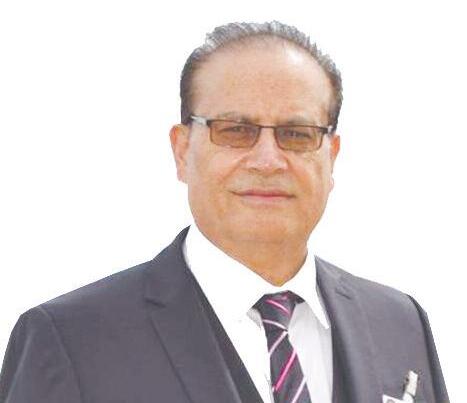


At i n f a i t h A s t h e c o n f e t t i o f h i s t r i u m p h s e t t l e s ov e r t h e s t r e e t s o f N ew Yo r k , o n e t r u t h r i n g s cl e a r : t h e s o n o f i m m i g r a n t s h a s r e k i n d l e d t h e i m m i g r a n t s p


Ie t g e n X I R A N I A N Foreign Minister Abbas Araghchi was bombarded with questions about a potential new round of nuclear talks with the U S as he exited a cabinet meeting and encountered journalists waiting outside Journalists routinely gather on Tehran’s Pasteur Street every Wednesday to question government officials This week a significant number of inquiries focused on the United States and the prospects of renewed diplomacy, following a week of discussions by Araghchi and other Iranian officials on negotiations, and remarks by the Leader of the Islamic Revolution concerning the possibility of normalization with Washington The remarks made in the past week despite being mostly pessimistic had spurred speculation about whether another round of negotiations was close, especially after Washington scrapped the previous one by bombing Iran in the middle of the diplomatic process However when asked if Iran was looking for a new mediator to facilitate talks between the two countries Araghchi stated there were no talks in the picture making a new mediator unnecessary There
themselves that they thought – out loud After all, they can say this stuff online and nobody bats an eyelid Why not in a hospital waiting room? It’s the conversational equivalent of young men trying out things they ve seen in online porn on real-life girlfriends and being surprised when it goes badly – except this time the main culprits are less likely to be confused teenagers than their parents, unmoored by the dizzyingly fast collapse of social norms online and the return of slurs they haven’t heard voiced out loud since childhood
Middle-aged radicalisation sounds almost like a contradiction in terms, a reaction to all the stereotypes about settling comfortably into your rut Besides, in our own heads, if nowhere else, gen X were always the mild-mannered peacekeepers of the culture wars: not old enough to be deemed reactionary or young enough to be woke and instead occupying a kind of cheerfully moderate Goldilocks zone in-between But something seems to have happened to us as we hit the midlife crisis years Gen Xers are now old enough to start worrying that the world is changing and leaving us behind: that if we get made redundant we might not get hired again that our marriages may not survive the shock of the kids leaving home, that our views are out of date and someone is out to get us for them, that people are laughing at us behind our backs Though most of us get through it without a political meltdown this time of life certainly has its casualties seeking an outlet for bottled-up rage and disappointment that life hasn t turned out as planned
It s gen Xers, not grumpy pensioners or teenage boys beguiled by rightwing influencers who are powering the populist insurgency now Only 19% of British fiftysomethings voted Reform UK at the last general election but a third of those aged between 50 and 64 would do so now, according to YouGov, which is a staggeringly fast turnaround for the “Cool Britannia” generation that put Tony Blair in Downing Street – and key to the party’s move from fringe to mainstream In the US gen Xers have been dubbed the Trumpiest generation because they re more likely than any other to identify as Republican Yet with rare exceptions such as the Smidge project – a three-year ongoing international study of how conspiracy theories and disinformation spread among 45- to 65year-olds and how deradicalisation could work for this age group – we show amazingly little curiosity about how middle-aged minds have been shaped by living through the great unregulated free-speech experiment
My generation likes to think we’re above being influenced by what we see online: that we re more tech-savvy than our parents less TikTok-addled than our kids and mature enough to separate it all from real life But the evidence suggests we re not nearly as capable of compartmentalising as we think Perhaps the only surprise, given how
are no plans for negotiations what do we need mediators for? he said to a journalist During the 12 days that Israeli and American fighter jets targeted Iran, and Iranian missiles ripped through air defenses in the occupied territories as well as a U S Airbase in Qatar the world – particularly West Asia – held its breath The conflict constantly threatened to spill over at any moment risking a regional conflagration with international reverberations After the war, Arabs, Europeans, Russians, and the Chinese alike hoped that the two sides could once again engage in diplomacy despite Washington having essentially bombed the negotiating table in June It appears however that new negotiations are very unlikely This is not merely because the unprecedented and illegal U S aggression fostered a domestic view that Washington desired talks as a smokescreen It also stems from the American tendency to seek talks with predetermined outcomes According to Iran s security chief Ali Larijani Washington wants Iran to not only implement full caps on its nuclear program, but also lower the range of its missiles, and cut ties with Resistance forces In his remarks to journalists on Wednesday Araghchi said Iran will never agree to negotiate non-nuclear issues
Washington’s negotiating behavior, coupled with its documented history of abandoning commitments with Iran significantly contributes to distrust and the belief that talks with Americans will lead nowhere according to Ebrahim Rezayi spokesman for the Iranian parliament s national security and foreign policy committee
“The United States has already betrayed its promises twice Once in 2018 when the Trump administration abandoned the JCPOA and again during the Biden administration when the two sides agreed to swap prisoners the lawmaker told the Tehran Times Three years after the JCPOA was signed in 2015 by Iran, the U S , UK, Germany, France, Russia, and China, Trump unilaterally withdrew from the UNendorsed pact which had offered Iran sanctions relief in exchange for limits on its nuclear activities and reinstated harsh sanctions In September 2023, under the Biden administration, Iran and the U S reached an agreement to release five detainees from each side and allow South Korea to transfer the oil money it owed to Iran The $6-billion sum was indeed transferred from South Korea to
and control mechanisms China’s success has demonstrated to developing nations worldwide that economic growth and environmental governance are not mutually exclusive They can avoid the traditional path of polluting first and cleaning up later” the Western industrialized countries once took China and India share certain commonalities in the environmental challenges


US influencers falsely associate NYC mayor- elec t Mamdani with Islamic State group

he himself suffered following the September 11 2001 attacks
The 34-year-old state lawmaker who appealed to voters by pledging to tackle the soaring cost of living has repeatedly been targeted by racist tropes and misinformation In the weeks leading up to the highly anticipated election AFP s fact-checkers debunked several false internet claims targeting Mamdani, including that a noncitizen illegally voted for him and that one of his campaign staffers posed beside graffiti of Nazi swastika

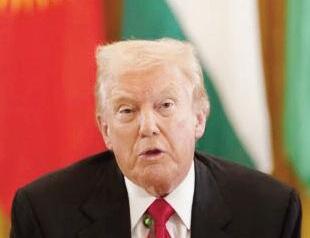
Collectorate of Customs Enforcement, Karachi, seized over 42 200 litres of smuggled Iranian diesel valued at over Rs12 million in a successful operation against the illegal storage and sale of contraband fuel along the Northern Bypass on Friday Acting on credible intelligence, Customs teams carried

ment proposals However, the United States, as the sponsor, did not fully heed the views of all members and forced the council to take action even when there were huge differences among council members in an attempt to serve its own political agenda China expresses its regret, Fu said At present, Syria is undergoing a political transition and is faced with a fragile security situation and the arduous task of counter-terrorism Numerous foreign terrorist fighters have exploited this situation to their advantage, seriously threatening the peace and security of Syria,
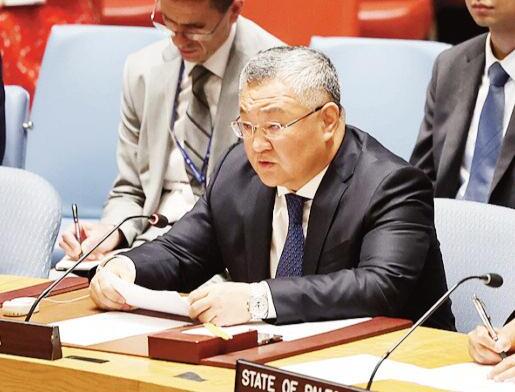



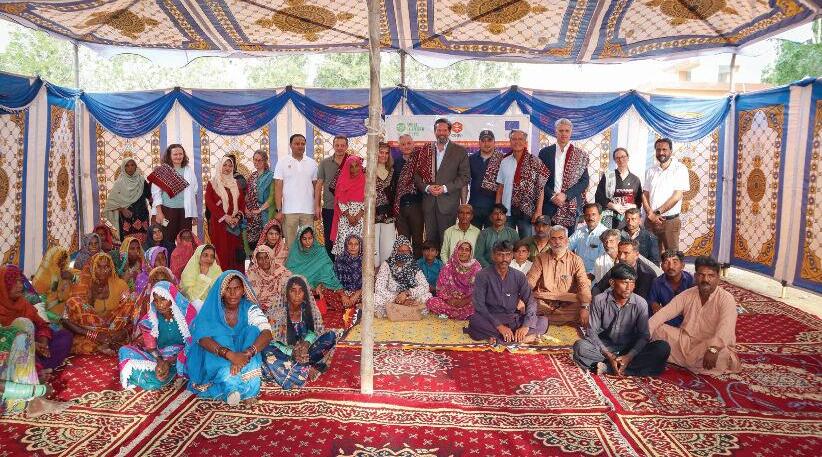
find trace of world’s oldest bread traditions to Anatolia KARACHI s ta f f r e p o r t Anatolia, one of the earliest cradles of settled life, continues to reveal the ancient roots of this tradition through remarkable archaeological discoveries that trace the evolution of bread-making across millennia At Konya s UNESCO-listed site of Çatalhöyük archaeologists uncovered an 8 600-year-old leavened bread near the remains of a damaged oven, dating to around 6600 BCE one of the oldest ever discovered
used in a fertility ritual before being buried Excavations at the Topraktepe (Eirenepolis) Ancient City in Karaman revealed five carbonised loaves dating to the 7th–8th centuries CE, thought to be sacramental breads used in early Christian rituals Meanwhile a discovery of a mould with a diamond (baklava) pattern at the Harran ruins in Şanlıurfa dating back 800 years offers new insights into medieval bread-making techniques These findings illuminate Anatolia s enduring bread culture, which remains vibrant

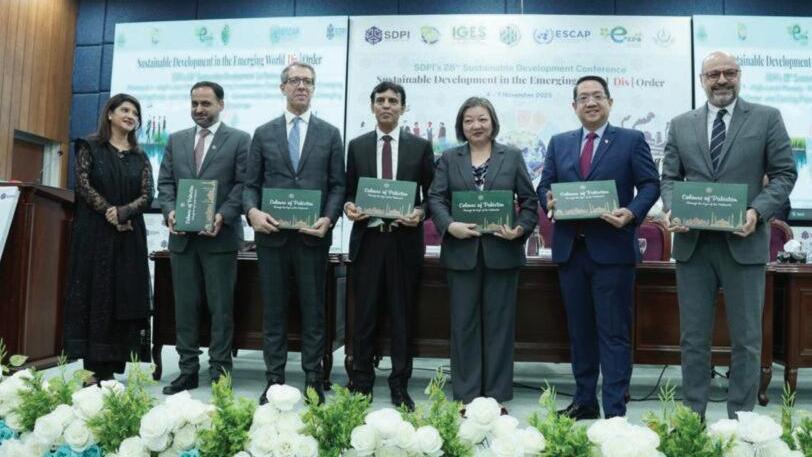


s atmosphere would have been clean Justice Karim remarked, directing the authorities to take action against anyone responsible for contributing to pollution

May 9 riots case: ATC sends SIC chief Hamid R aza to jail to ser ve 10-year sentence

Federal cabinet meeting on proposed 27th Amendment deferred
Pakistan slams India’s suspension of Indus Water Treaty at UN
Pakistan has strongly condemned India’s unilateral suspen-
sion of the Indus Water Treaty (IWT) warning that such actions set a dangerous precedent for resource-based coercion and threaten regional stability
Speaking at a UN Security Council (UNSC) session, Pakistan s Permanent Representative to the United Nations, Ambassador Asim Iftikhar Ahmad, voiced alarm over what he described as the “deliberate weaponisation of shared natural resources ” His remarks came in reference to India’s recent decision to suspend its participation in the six-decade-old water-sharing agreement
This move should be of grave concern to every member of this Council and to the international community as a whole,” the ambassador said, according to a statement issued by Pakistan’s Permanent Mission to the UN Ambassador Asim reminded the Council that for more than sixty years the IWT had stood as a model of cooperation ensuring fair and predictable water sharing between Pakistan and India even during periods of conflict India s unlawful unilateral decision to suspend this framework undermines both the letter and the spirit of the treaty,” he said “It threatens fragile ecosystems, disrupts essential data sharing, and endangers millions whose survival depends on the Indus water system for food and energy security
He cautioned that such measures not only harm one country but also erode global confidence in international water law They set a precedent for resource-driven coer-
cion elsewhere he added
Reaffirming Pakistan s consistent stance the envoy said that the IWT contains no provision allowing either party to unilaterally suspend or modify its terms He urged a swift return to compliance through established mechanisms, calling for “full respect for the treaty and its continued implementation in good faith ”
Beyond the water dispute Ambassador Asim also drew attention to the broader link between environmental degradation and global security He called for a paradigm shift toward preventive and sustainable peacebuilding, urging the international community to integrate environmental considerations into conflict prevention, peacekeeping, and postconflict recovery efforts
He further urged the UNSC to fulfil its Charter responsibility to address threats to international peace and security at their very inception warning that environmental degradation in conflict is not merely collateral damage, but a catalyst for instability
Reiterating Pakistan’s commitment to multilateral cooperation the envoy pledged Islamabad’s determination to “advance collective action for ecological restoration uphold international law and transform shared natural resources into tools of cooperation rather than instruments of division
Under the 1960 Indus Water Treaty, three western rivers the Indus, Jhelum, and Chenab were allocated to Pakistan, while India received rights over three eastern rivers In 2023, Pakistan approached the Permanent Court of Arbitration (PCA) in The Hague to challenge the design of Indian hydropower projects on rivers reserved for Pakistan under the treaty
‘Pakistan needs educ ation, not amendments ’: JI chief blasts politic al leadership
PESHAWAR S y e d S h a h a b u d d i n Says both ‘Mr ’ and ‘Maulana’ camps joined hands for 26th Amend but it produced nothing except judicial subservience says same drama begun over 27th Amendment, and once again, it will end in exploitation of people Claims over 5m children still out of schools in KP alone while education budgets of Rs1 200b lost corruption SWAT: Jamaat-e-Islami Pakistan (JI) Emir Hafiz Naeemur Rehman on Thursday launched a scathing attack on the country s political leadership, saying Pakistan needs education, not constitutional amendments,” as millions of children remain out of school and billions in education funds are allegedly lost to corruption every year
Addressing more than thirty-five thousand young participants at the Bano Qabil programme test in Kabal, Swat, Hafiz Naeem said the rulers had “exploited the youth by depriving them of education ” noting that over five million children in Khyber Pakhtunkhwa alone were out of school He said provincial governments education budgets exceeding Rs 1,200 billion annually were routinely swallowed up by corruption The JI emir linked the country’s political turmoil to what he called a

crisis of priorities recalling that during the 26th Constitutional Amendment both the Mr and the Maulana camps joined hands, but the entire political maneuvering produced nothing but “judicial subservience ” “Now the same drama has begun over the 27th Amendment and once again it will end in the exploitation of the people he remarked Criticising the provincial government over its handling of the education sector, he said that despite twelve years of rule in Khyber Pakhtunkhwa, the ruling party had failed to bring any substantial reforms
